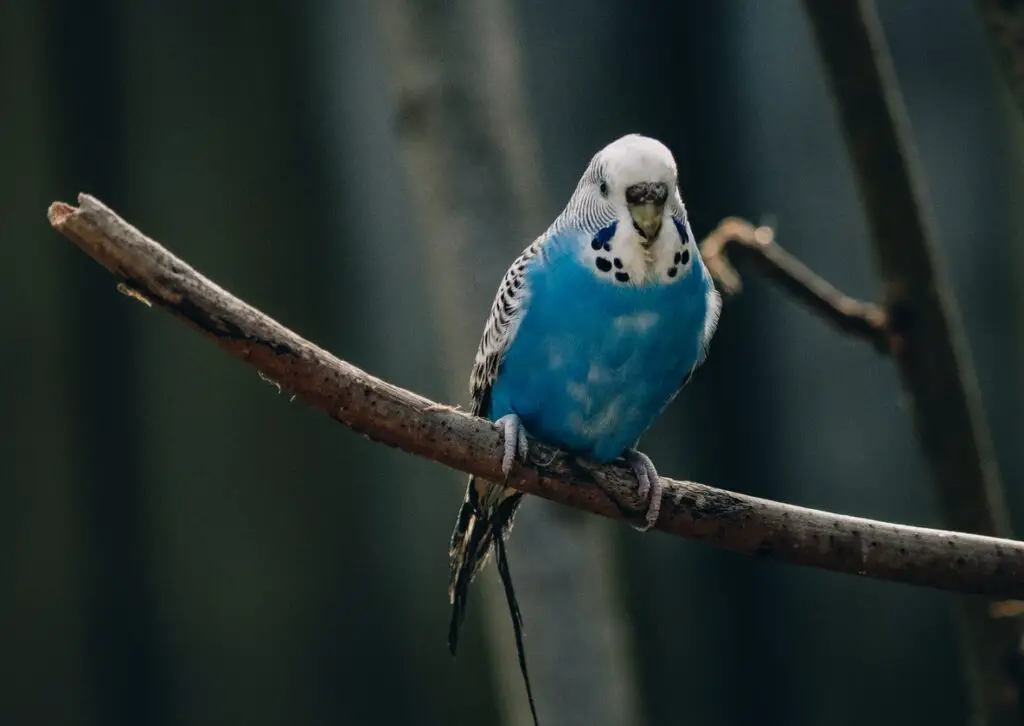Are you worried about your budgie’s sudden silence? It’s natural to be concerned when your chirpy little friend goes quiet. Budgies are known for their vocal nature, so a lack of chirping can indicate something is amiss. But don’t fret! There are common causes for a budgie’s loss of vocalization, and there are solutions to help your feathered companion find their voice again.
One possible reason for your budgie’s silence is avian goiter, which can cause a swollen throat and difficulty vocalizing. This condition often stems from a diet lacking iodine or ingesting certain foods that hinder thyroxine production.
Another culprit could be injuries, such as cracked bones or bumblefoot, which can impact vocalization. Respiratory infections like mycoplasma or chlamydophila can also lead to a quiet budgie and require antibiotic treatment.
Stress, anxiety, and depression can cause a budgie to go silent. Creating a suitable environment with the right temperature, lighting, and stimulation can help alleviate stress and encourage vocalization. Providing a companion bird or ambient noise can also be beneficial.
Remember to pay attention to your budgie’s body language and other cues for signs of distress or illness. Together, we can help your budgie find their voice once again!
- Key Takeaways
- Possible Causes Your Budgie Stopped Chirping
- Treatment Options For Silent Budgies
- Encouraging Your Budgies Vocalization
- Frequently Asked Questions
- How can I tell if my budgie is experiencing stress or anxiety?
- Are there any natural remedies or supplements that can help with avian goiter?
- Can budgies communicate with each other through their chirping?
- Is it normal for budgies to sleep during the day?
- How can I tell if my budgie is sick or injured if they instinctively hide any signs of illness?
Key Takeaways
- Budgies may stop chirping for various reasons, such as avian goiter, respiratory infections, injuries, or stress.
- Avian goiter, caused by an inappropriate diet or certain foods, can lead to a swollen throat and difficulty in vocalization.
- Injuries like cracked bones or bumblefoot can also cause a lack of vocalization in budgies.
- Respiratory infections, such as mycoplasma or chlamydophila, can lack vocalization and require antibiotic treatment.

Possible Causes Your Budgie Stopped Chirping
If your budgie has suddenly stopped chirping, there could be various reasons, including avian goiter, respiratory infections, injuries, or stress.
Avian goiter can cause a swollen throat and difficulty in vocalization. Look out for signs such as loss of appetite, vomiting, sudden weight loss, wheezing, and trouble breathing. Goiter is often caused by an inappropriate diet lacking iodine or ingesting certain foods that block thyroxine production.
Injuries, like cracked bones or bumblefoot can also lead to a lack of vocalization in budgies. Additionally, respiratory infections like mycoplasma or chlamydophila should be considered.
Budgies may also stop chirping due to stress, which boredom, excessive noise, disturbed sleep patterns, changes in lifestyle, or loneliness can cause. Signs of stress include feather plucking, loss of appetite, refusal to hydrate, biting or pecking other birds, and general lethargy.
Treatment Options For Silent Budgies
Consider consulting a veterinarian to explore potential treatment options for your budgie’s lack of vocalization. They can provide guidance and recommend alternative treatment methods or medication options to address the underlying cause.
Depending on the specific reason for your budgie’s silence, there may be different approaches to consider. For example, if your budgie is experiencing respiratory issues, the vet may prescribe antibiotics to treat infections like mycoplasma or chlamydophila.
If stress or anxiety is the culprit, the vet may suggest behavior modification techniques and environmental changes to help alleviate your budgie’s distress. Additionally, if your budgie has an avian goiter, adjusting their diet and adding iodine supplements could be part of the treatment plan.
Remember, seeking professional advice is essential to ensure the well-being and vocalization of your beloved budgie.

Encouraging Your Budgies Vocalization
To encourage your budgie to chirp again, provide a stimulating environment with toys, perches, and mirrors in their cage. Budgies thrive on mental and physical stimulation, so having a variety of toys can keep them entertained and encourage vocalization. Choose safe and appropriate toys for budgies, such as bells, ropes, and puzzle toys.
Additionally, perches of different sizes and textures can provide exercise and keep their feet healthy. Introducing a companion bird can also help stimulate vocalization in budgies, who’re social creatures. Ensure that the cage is large enough to accommodate both birds comfortably and that they get along well. Remember to introduce them and provide supervised interaction at first gradually.
Creating a stimulating environment and considering a companion bird can encourage your budgie to chirp happily again.
